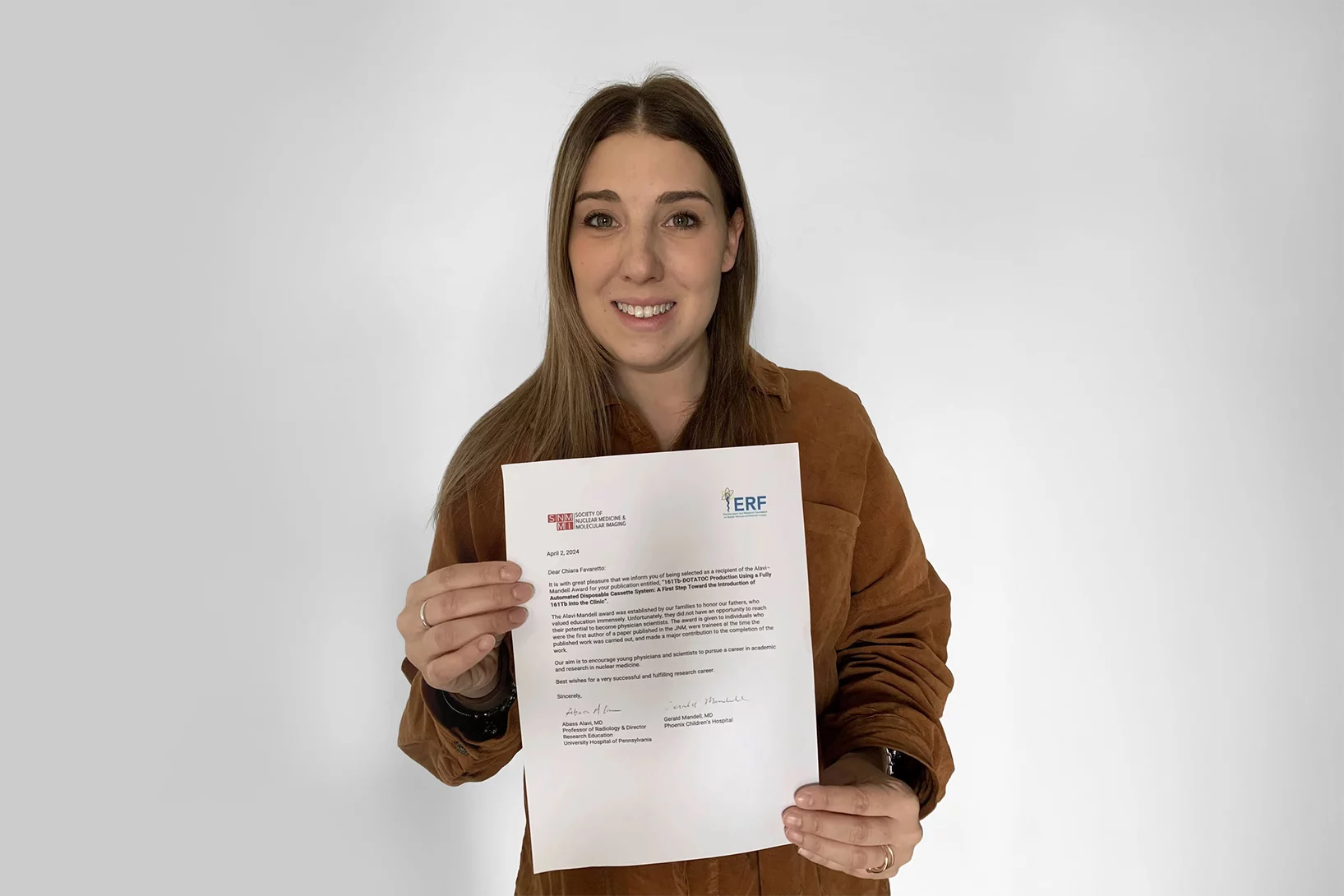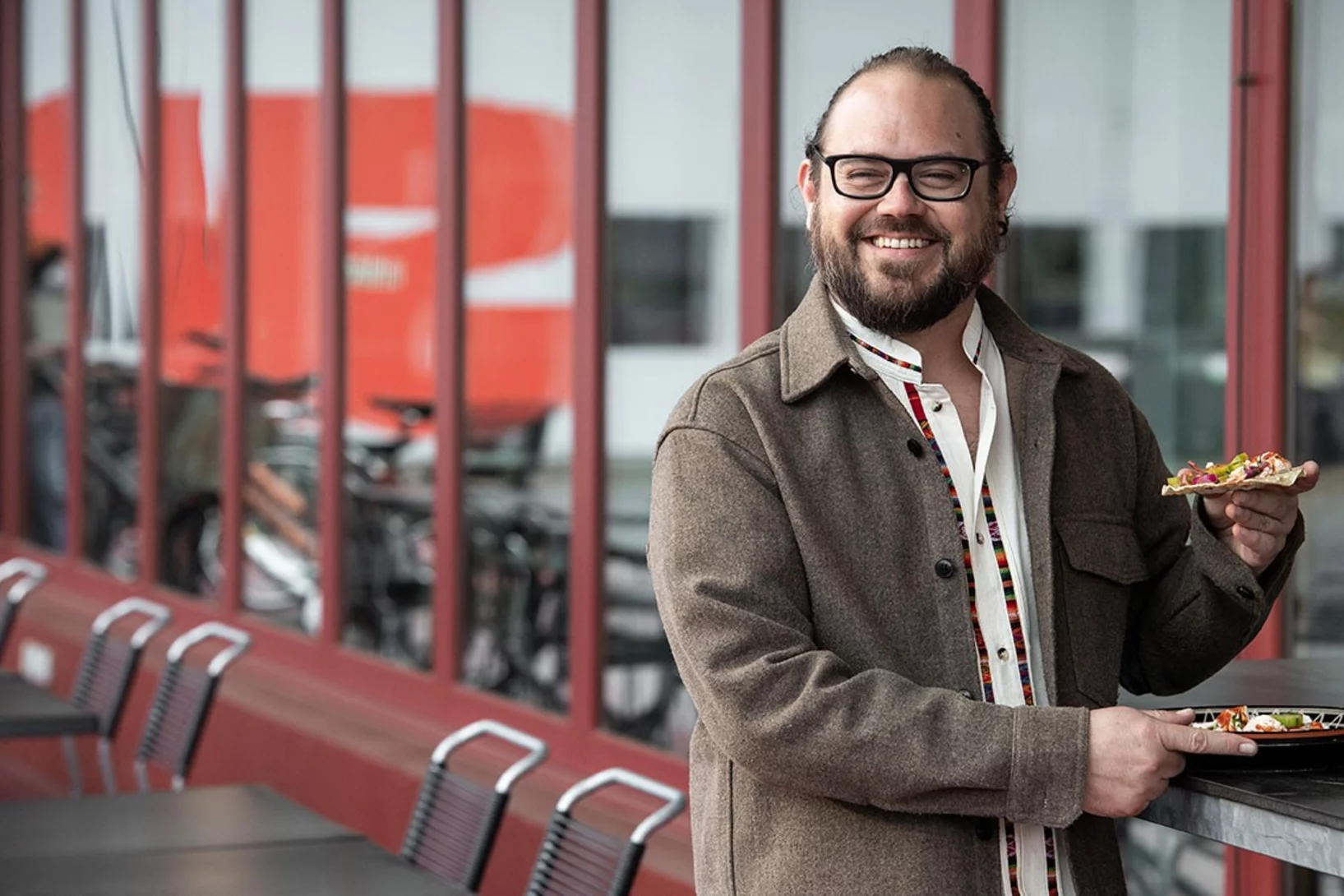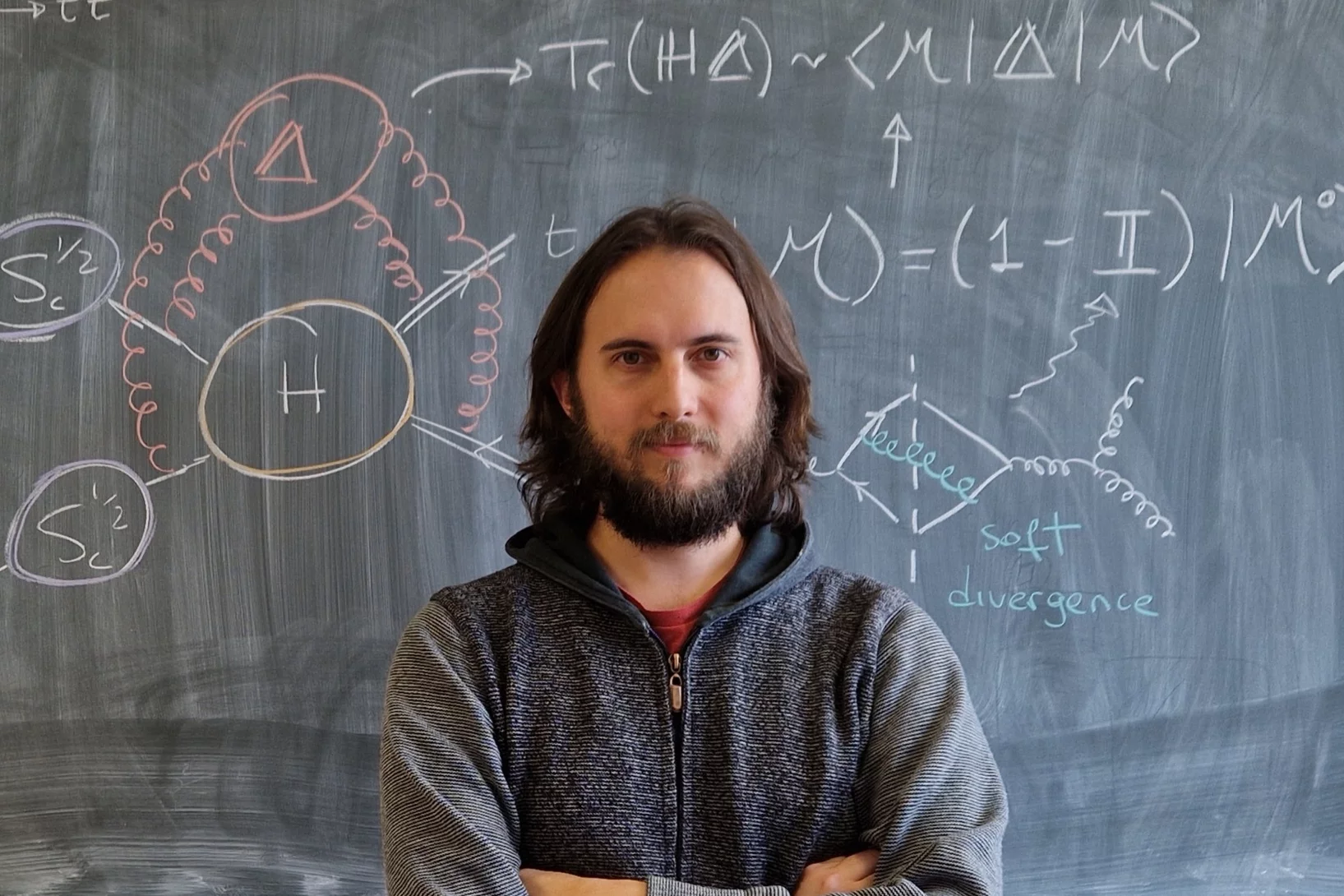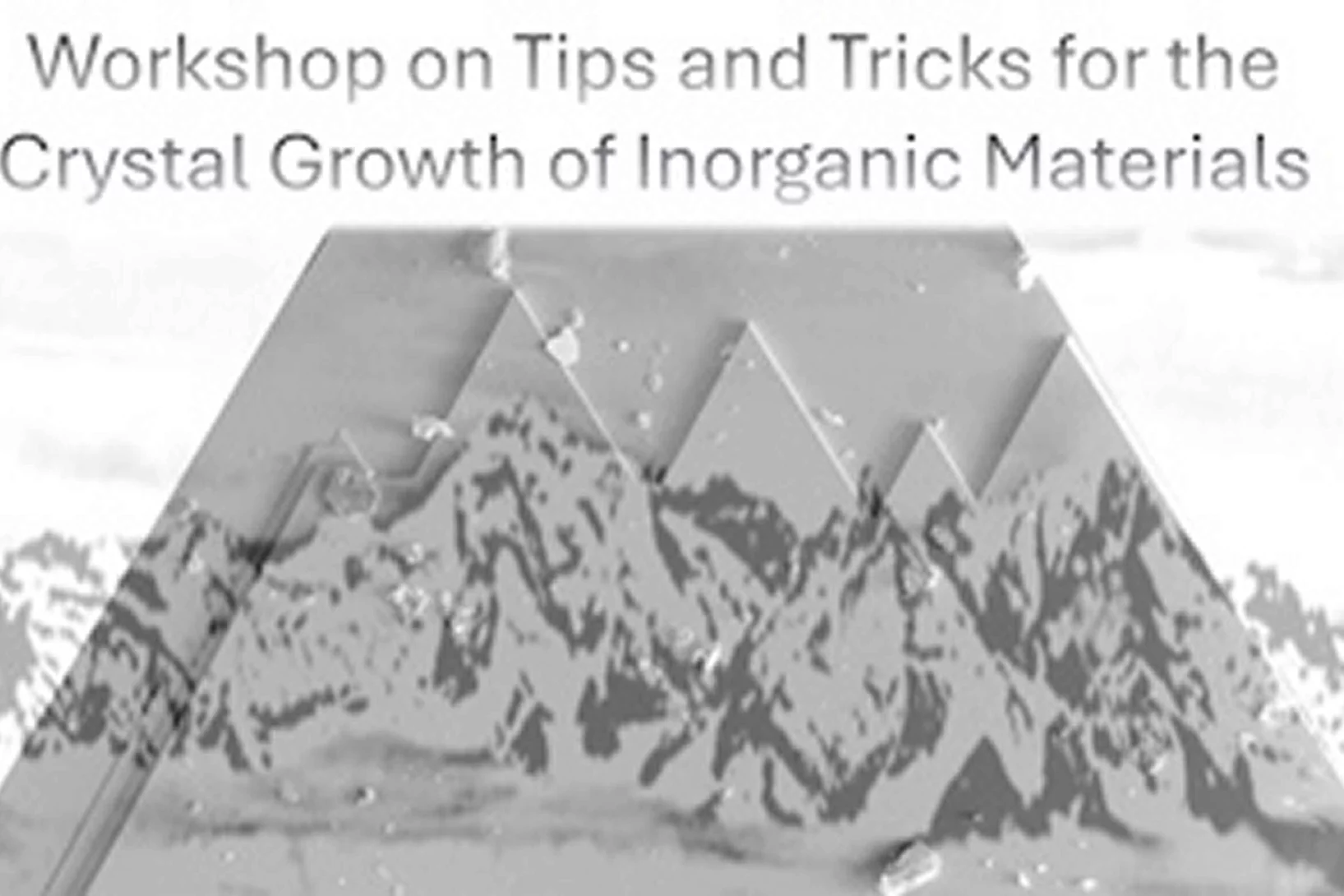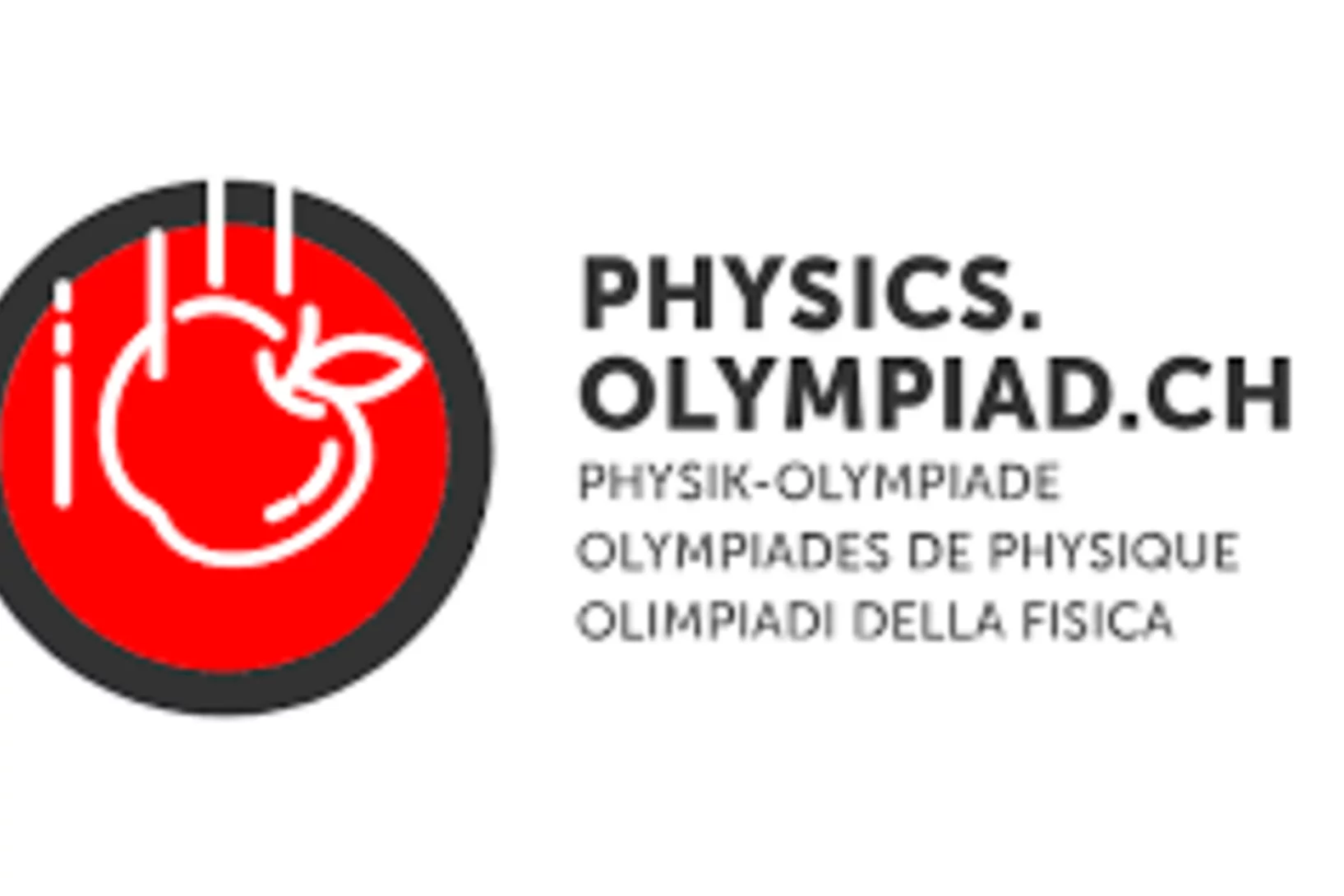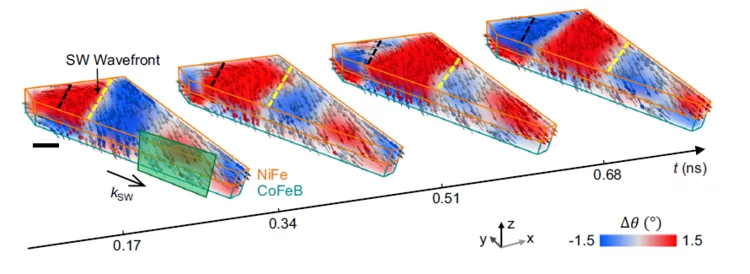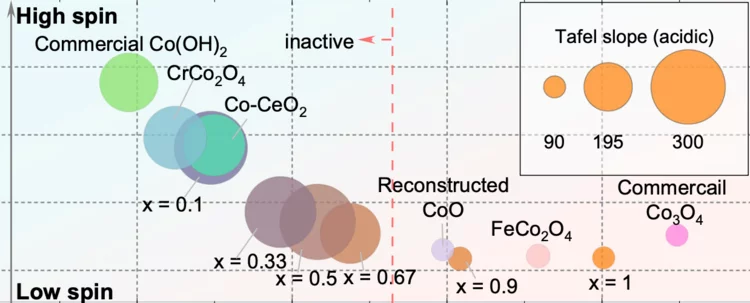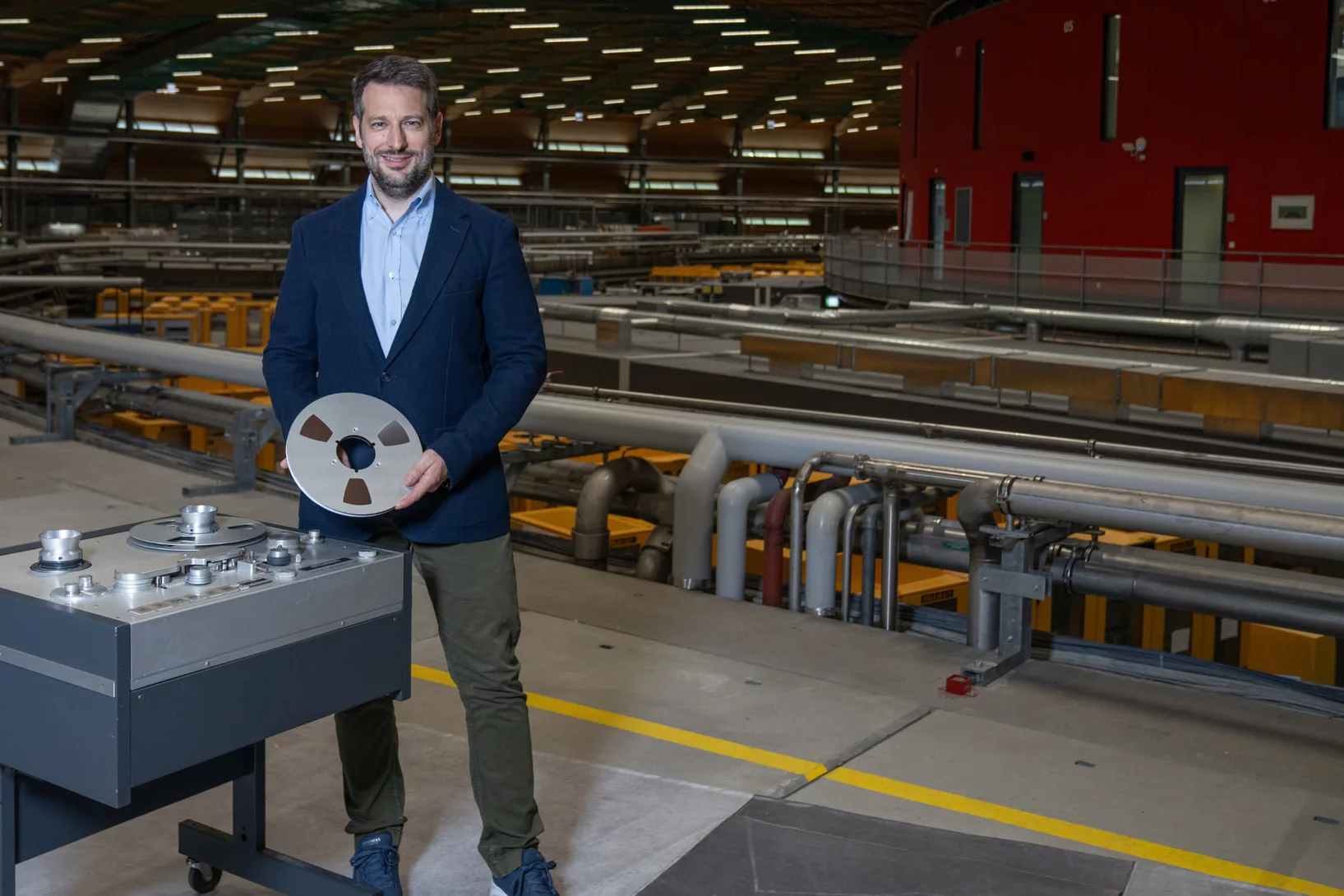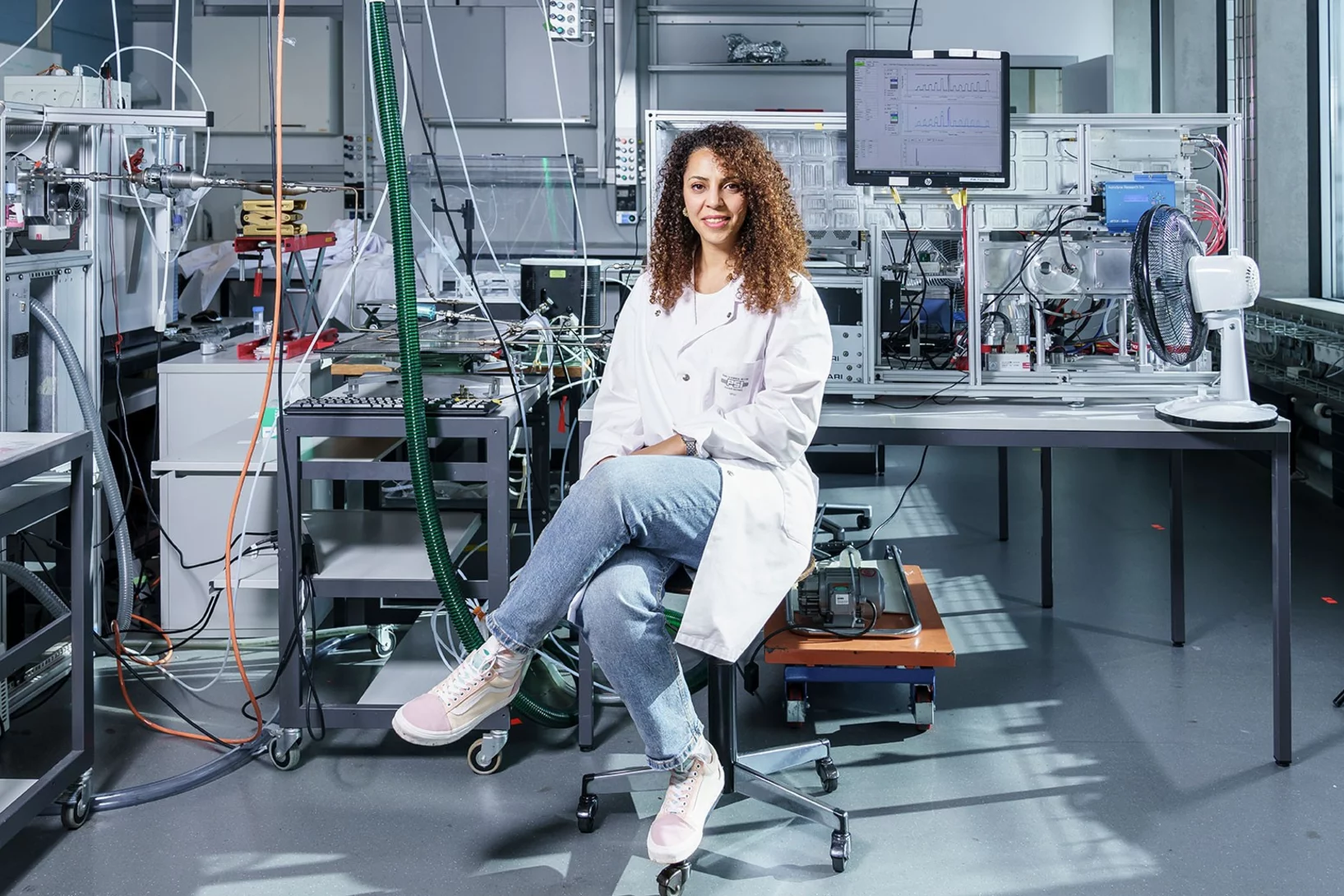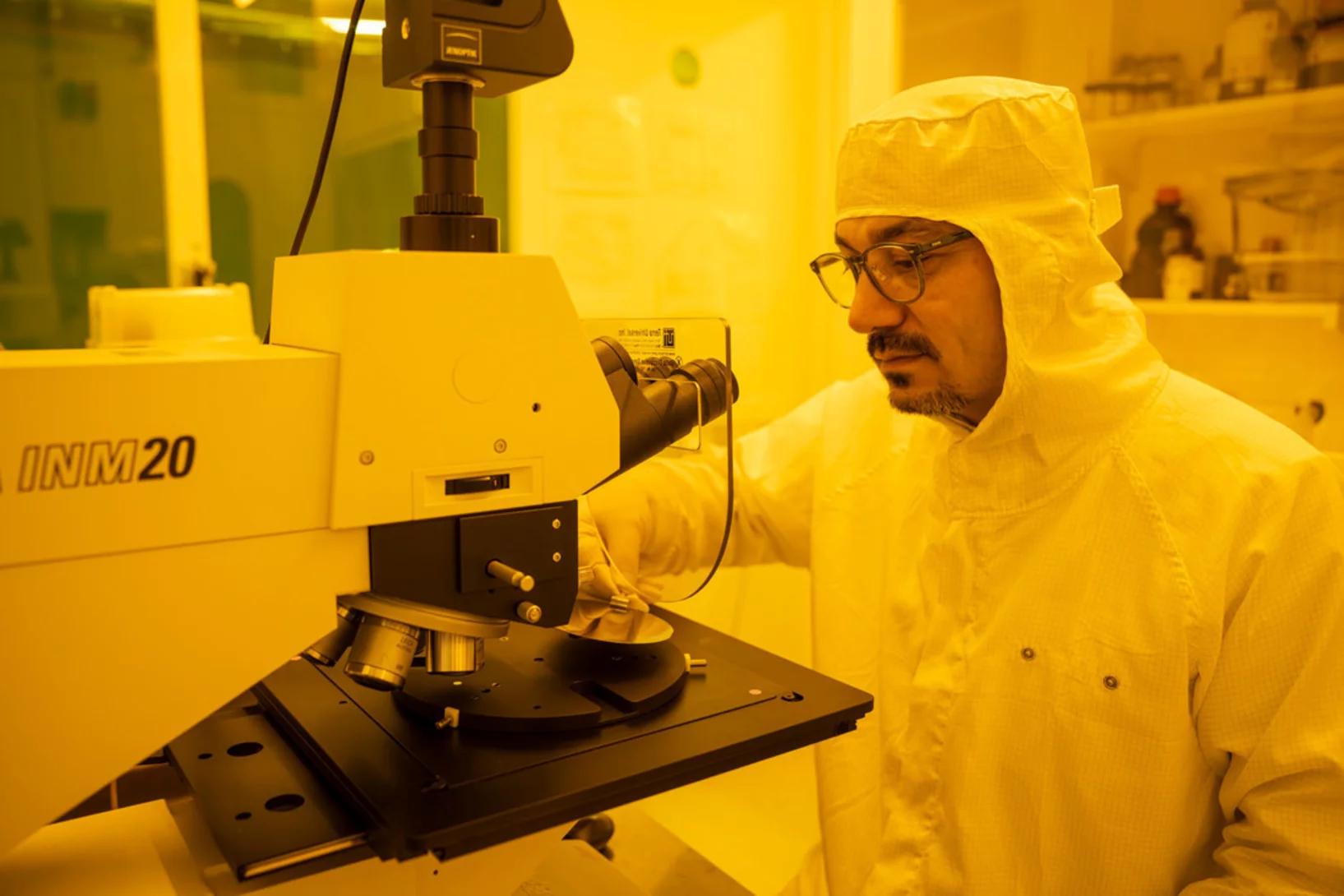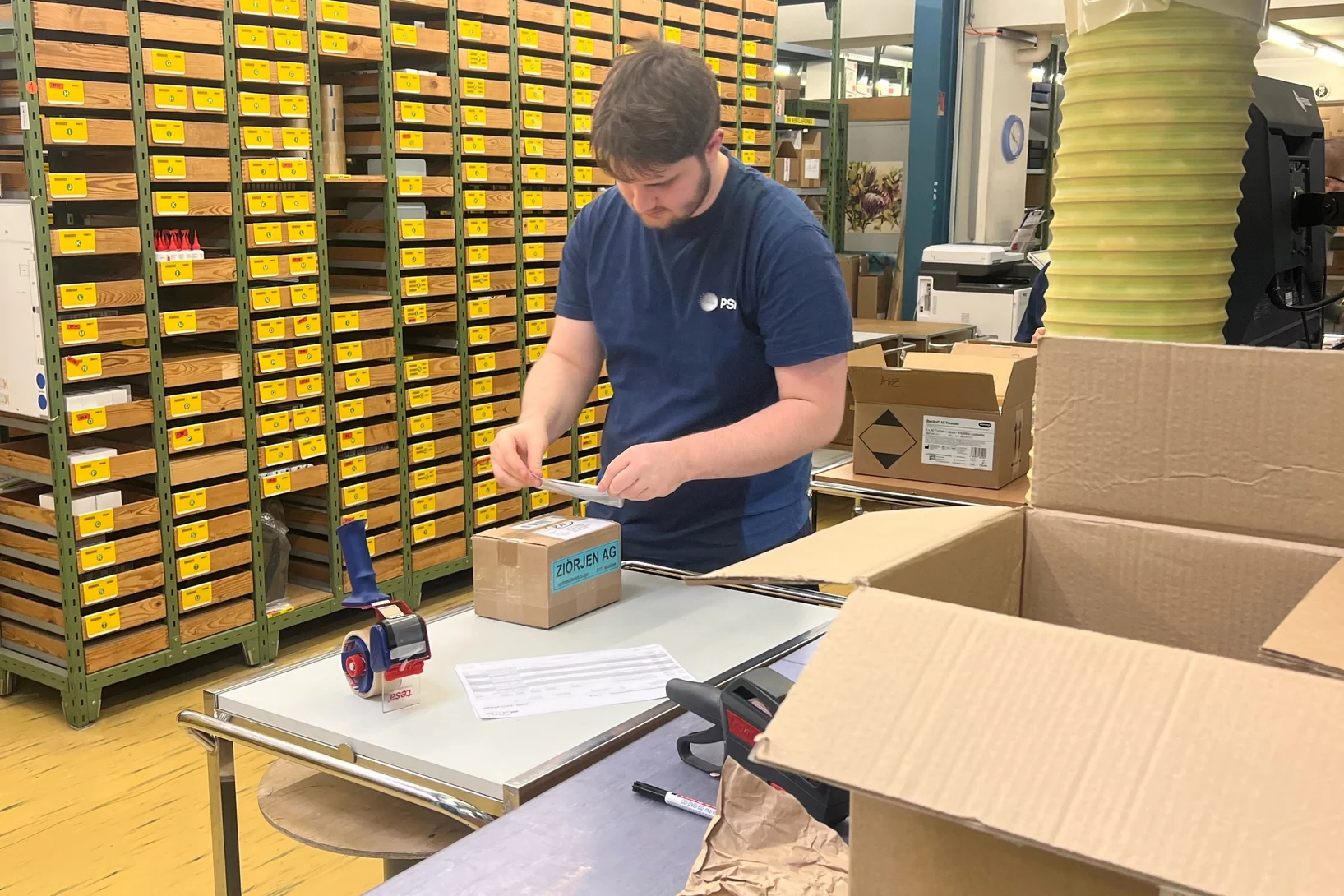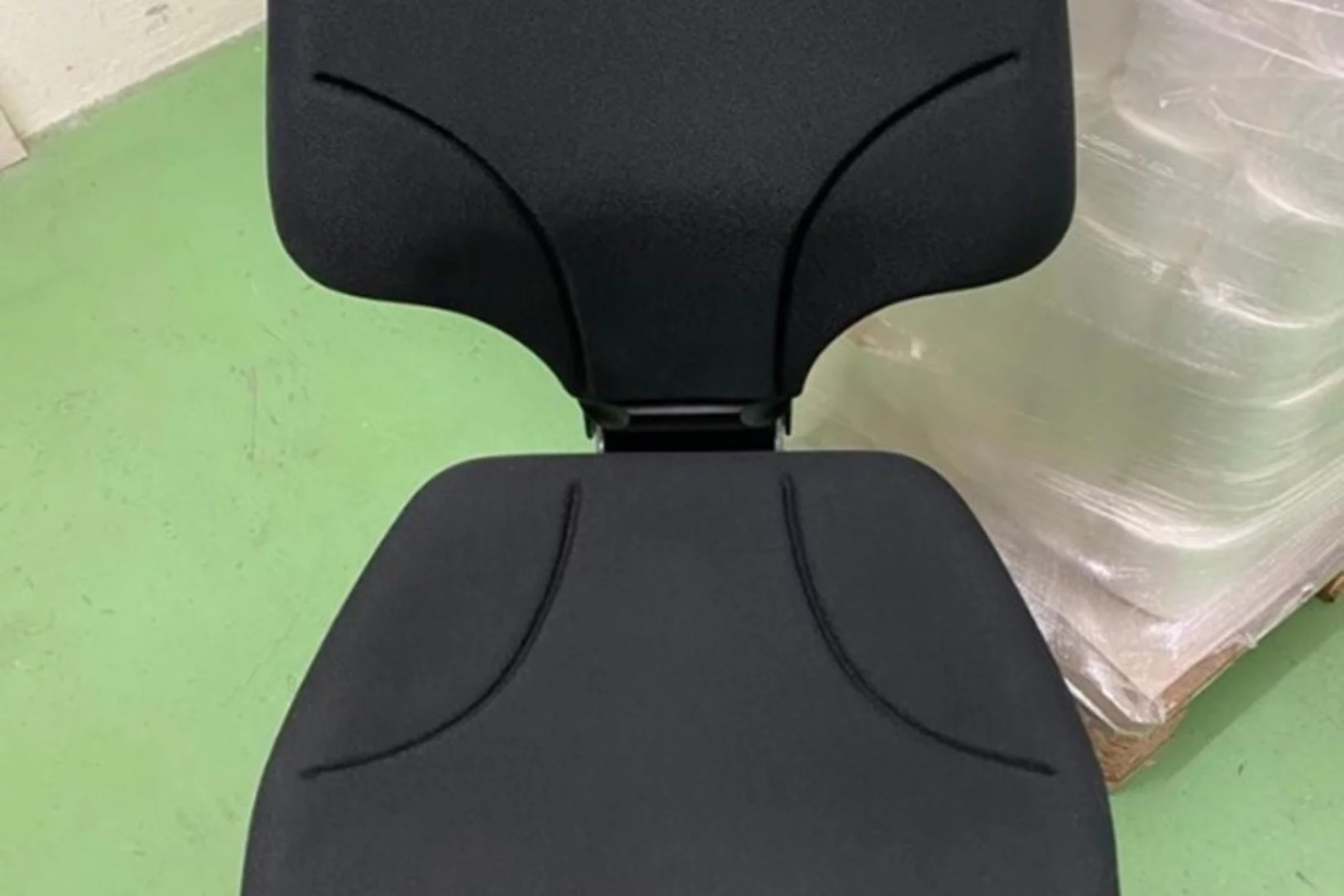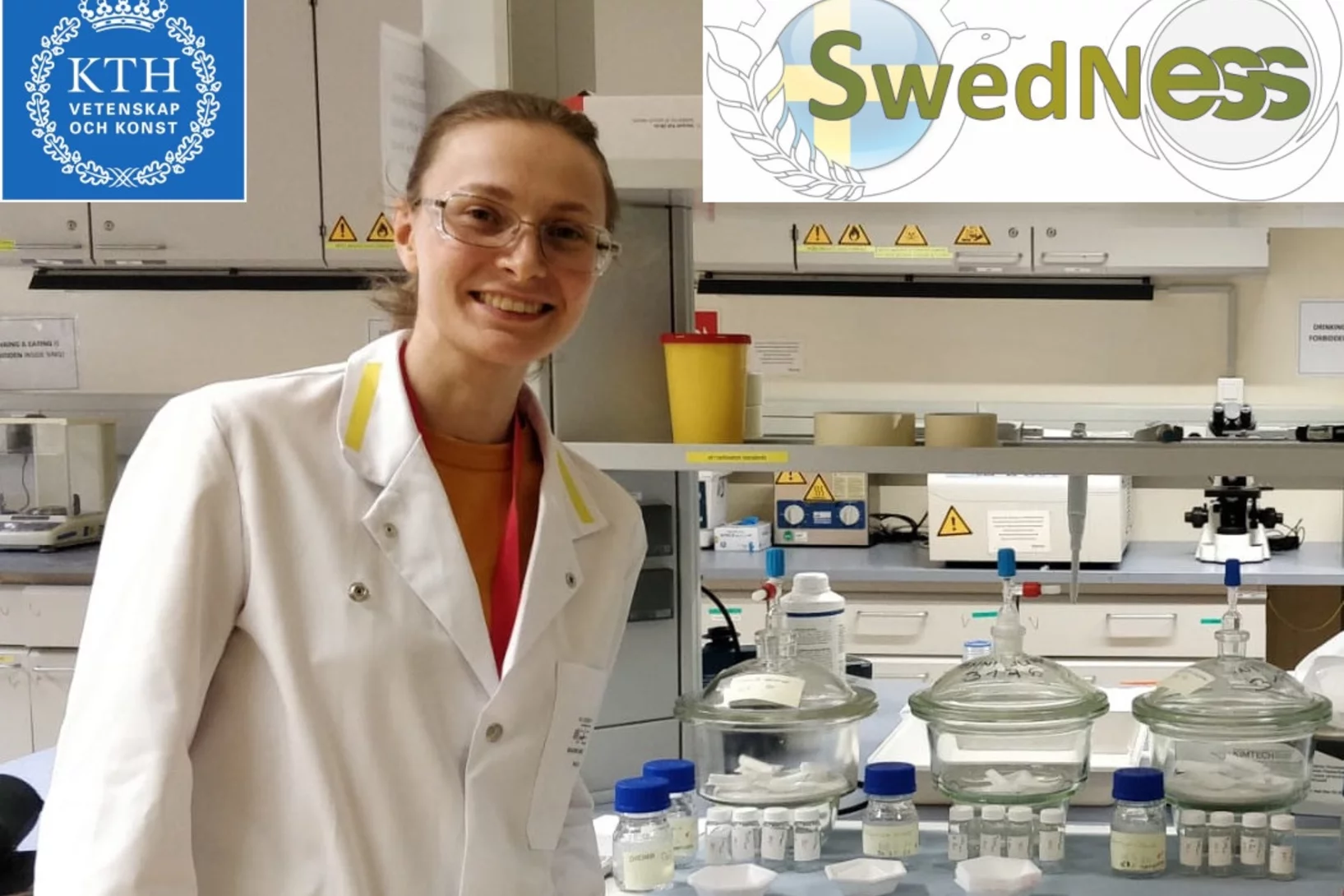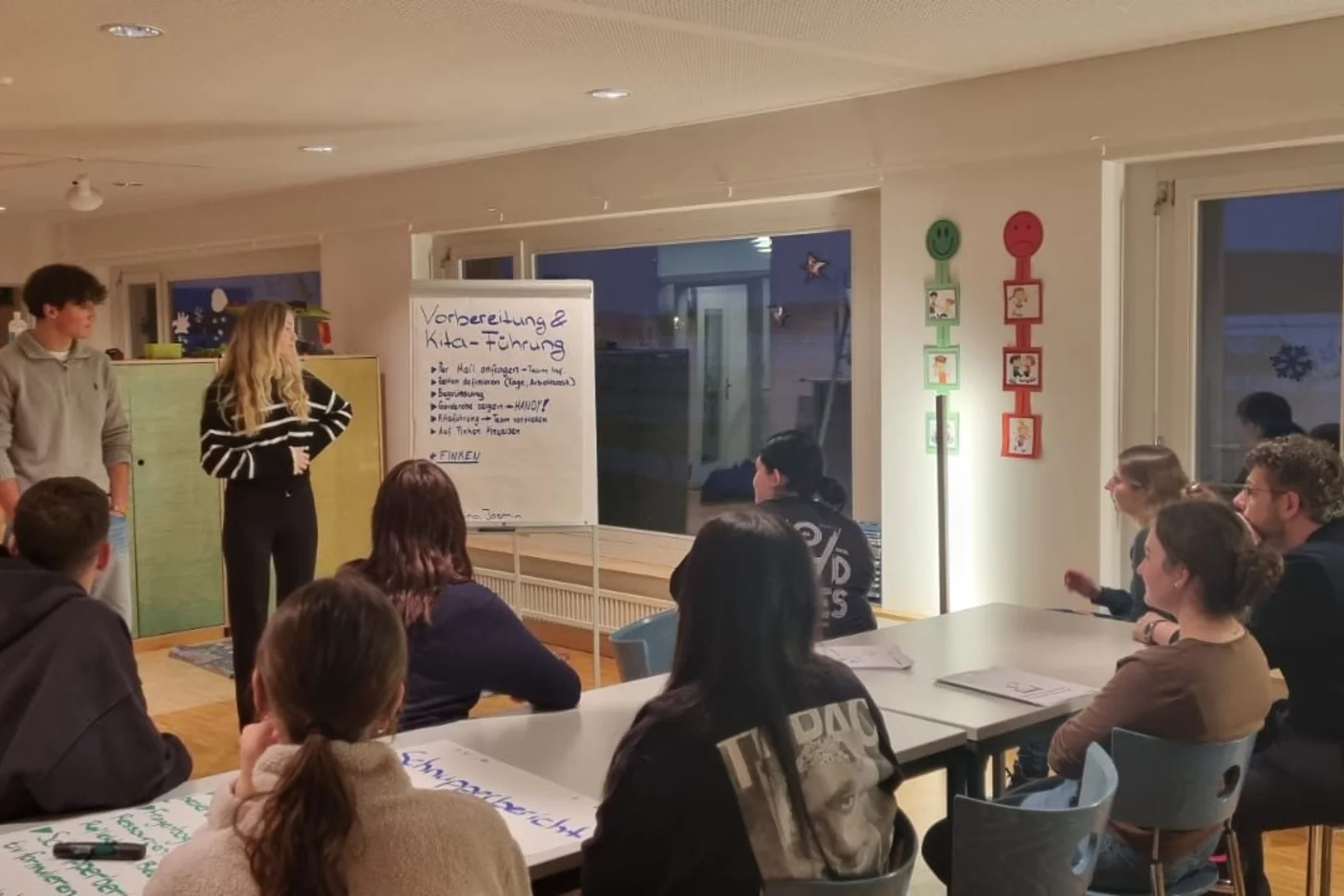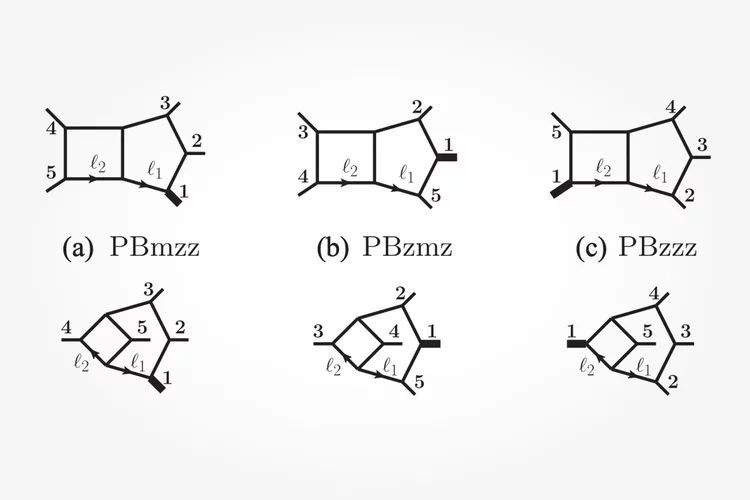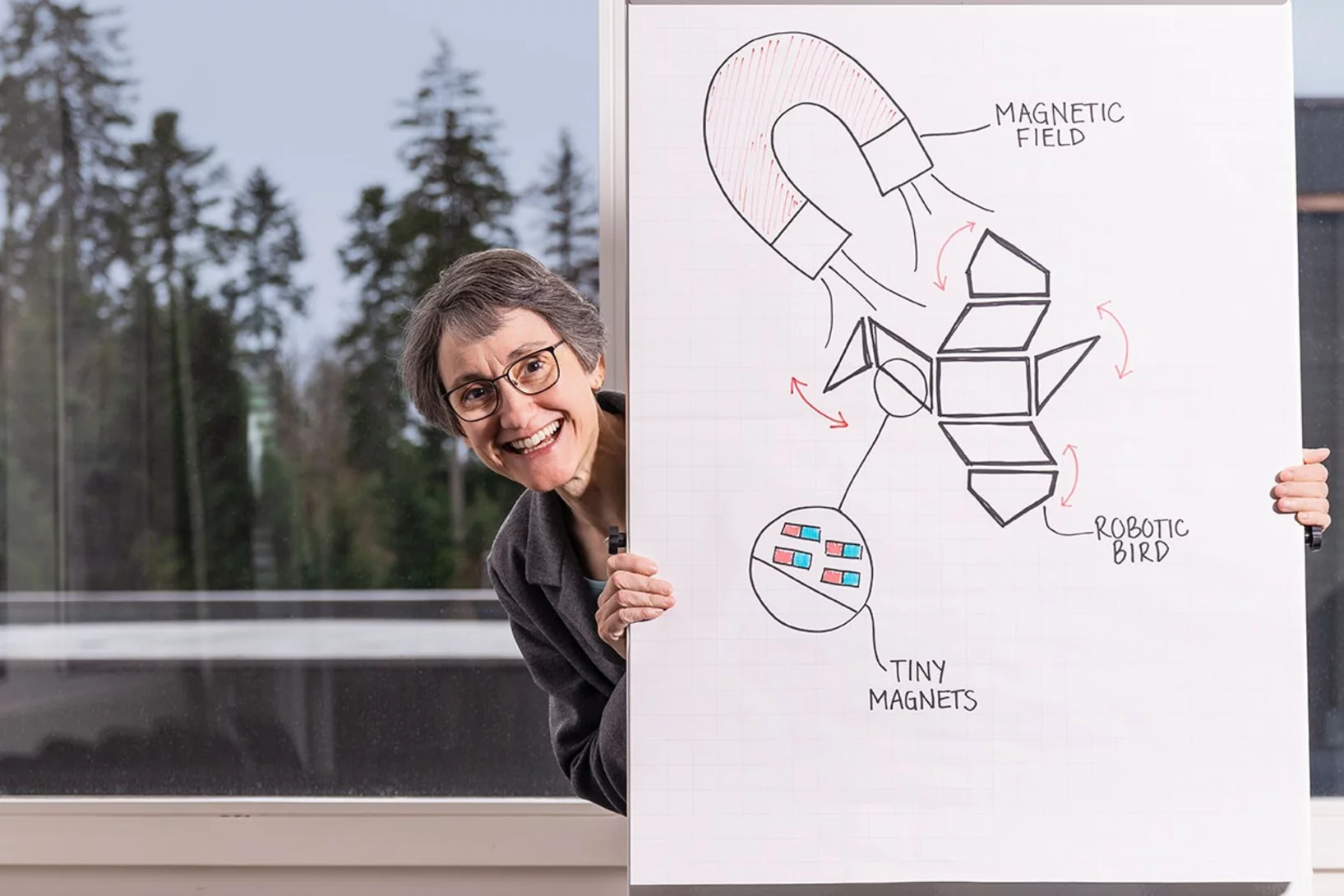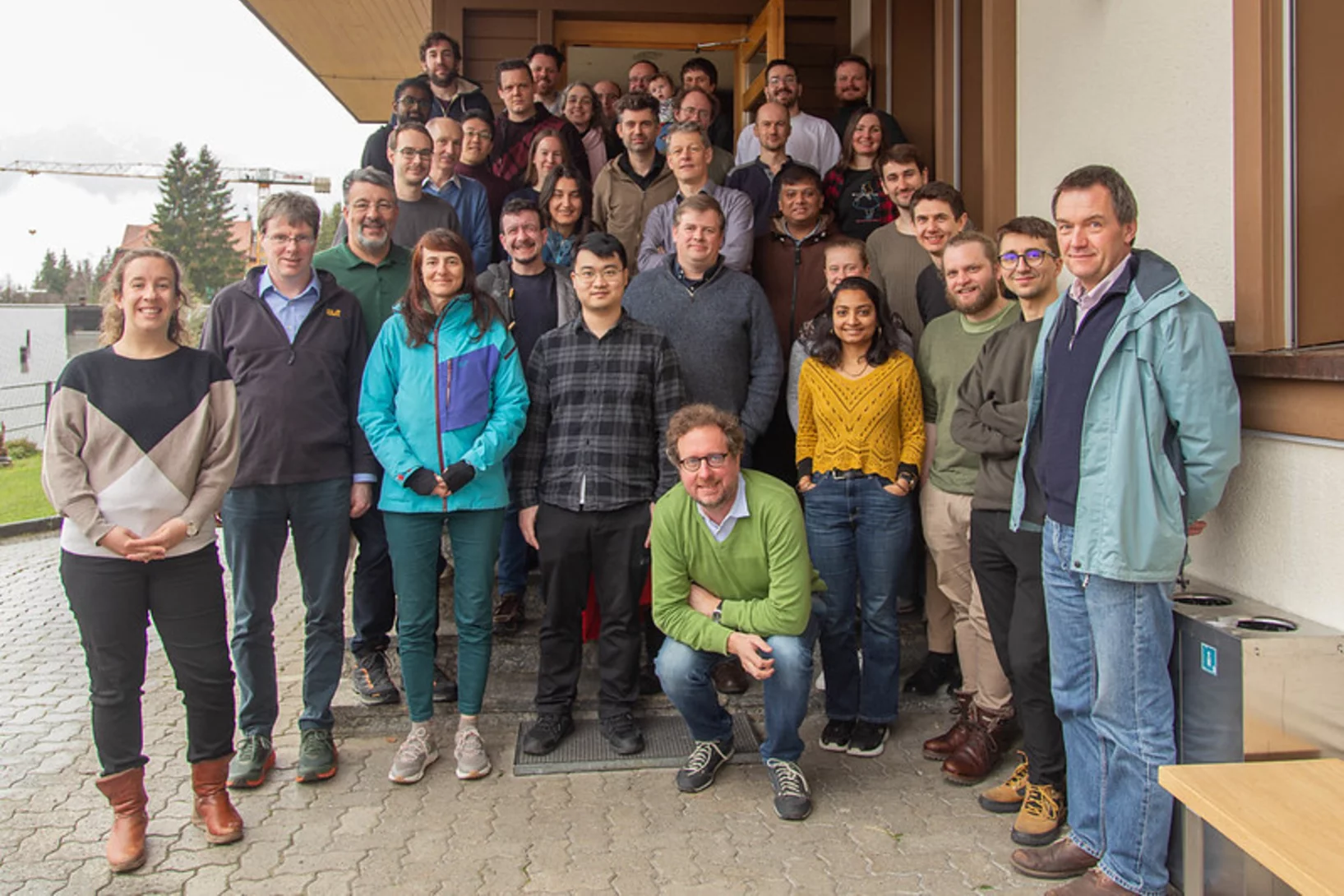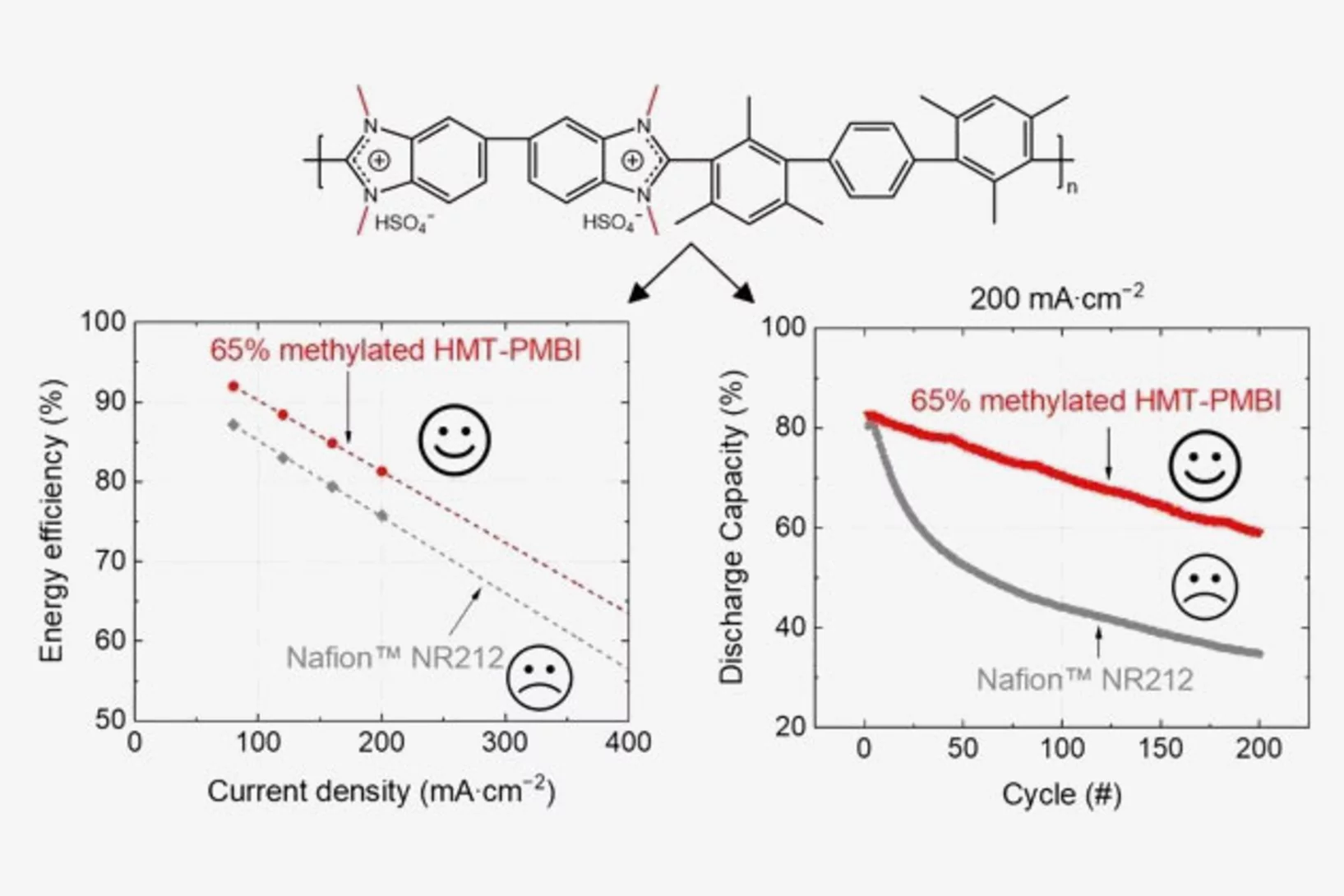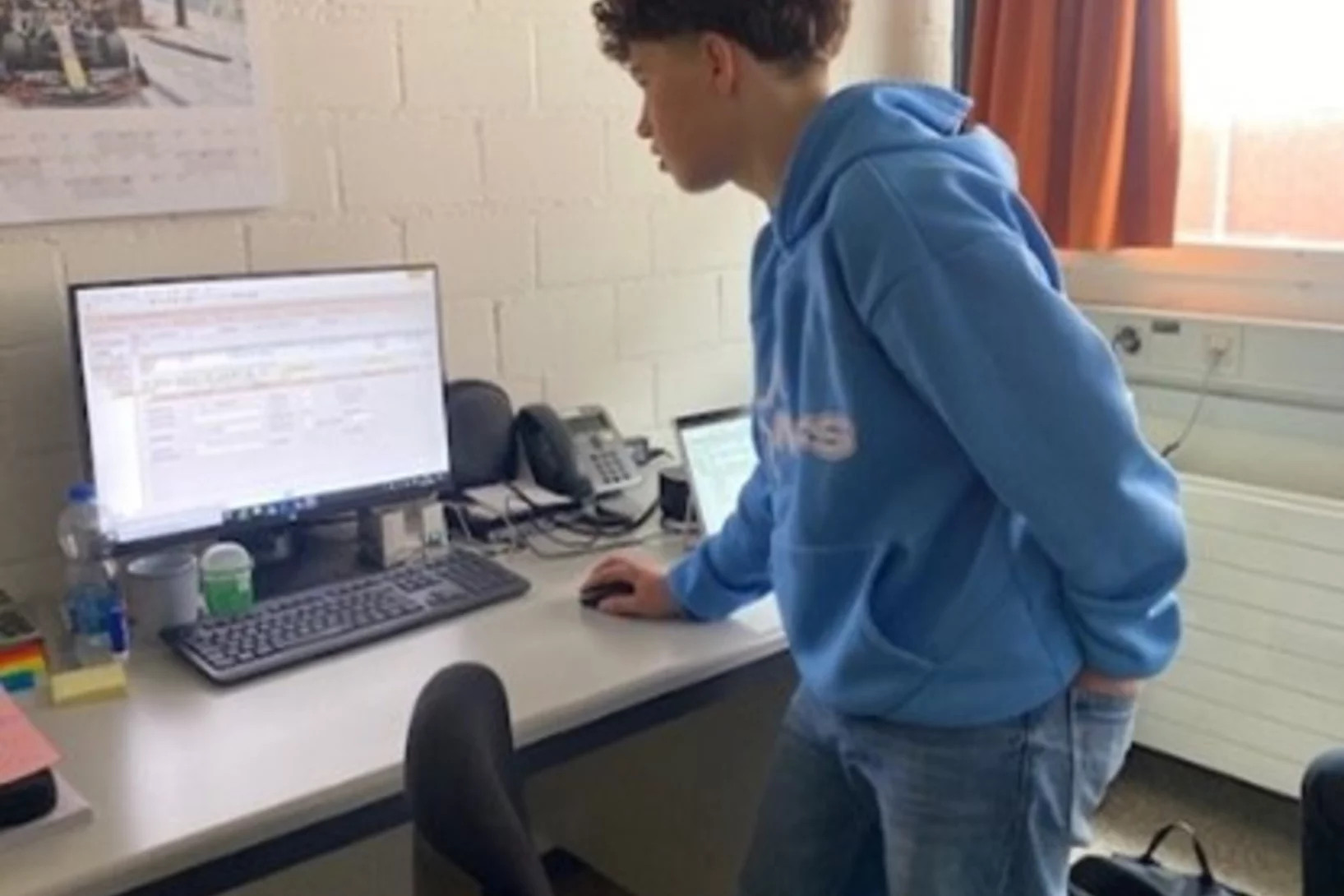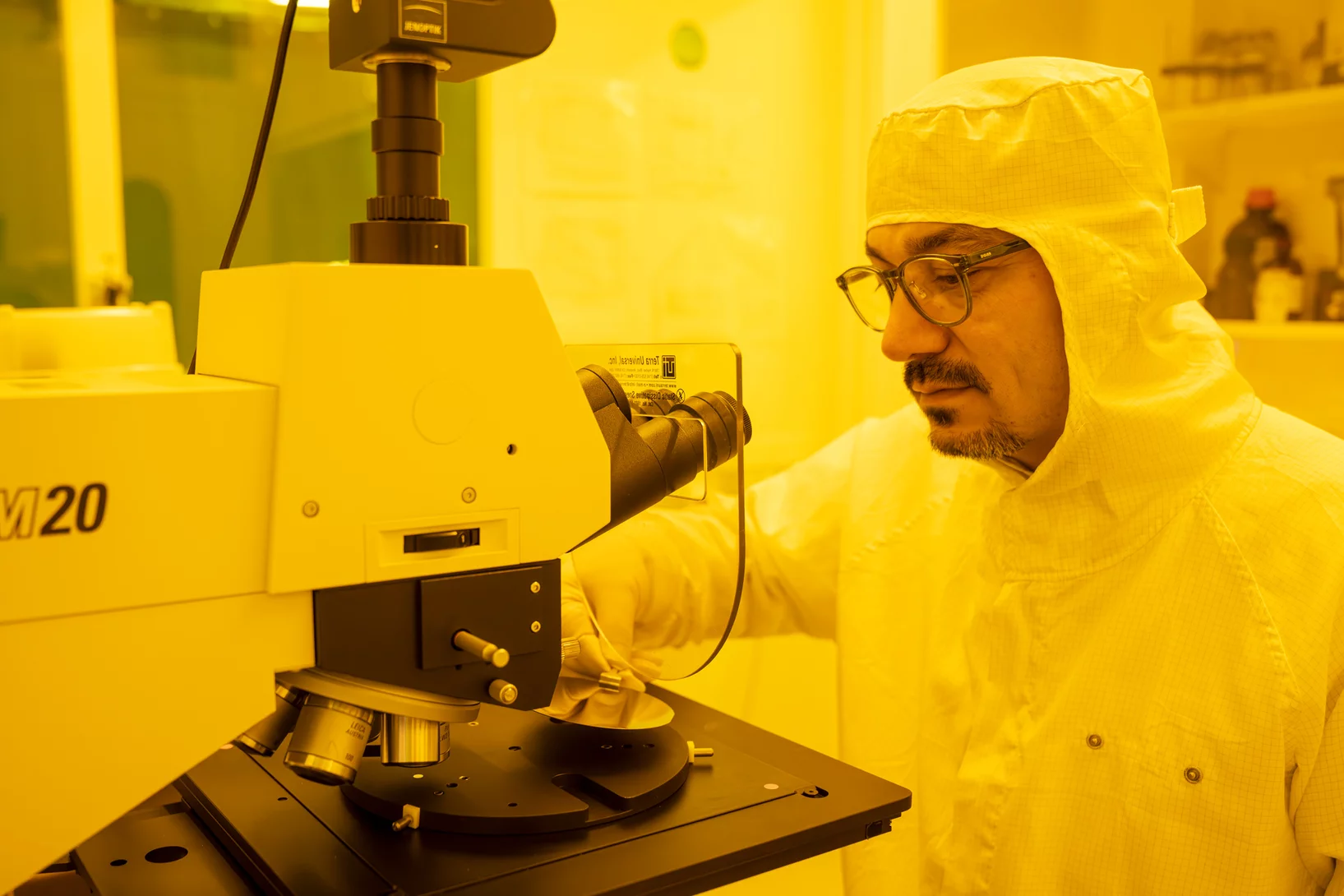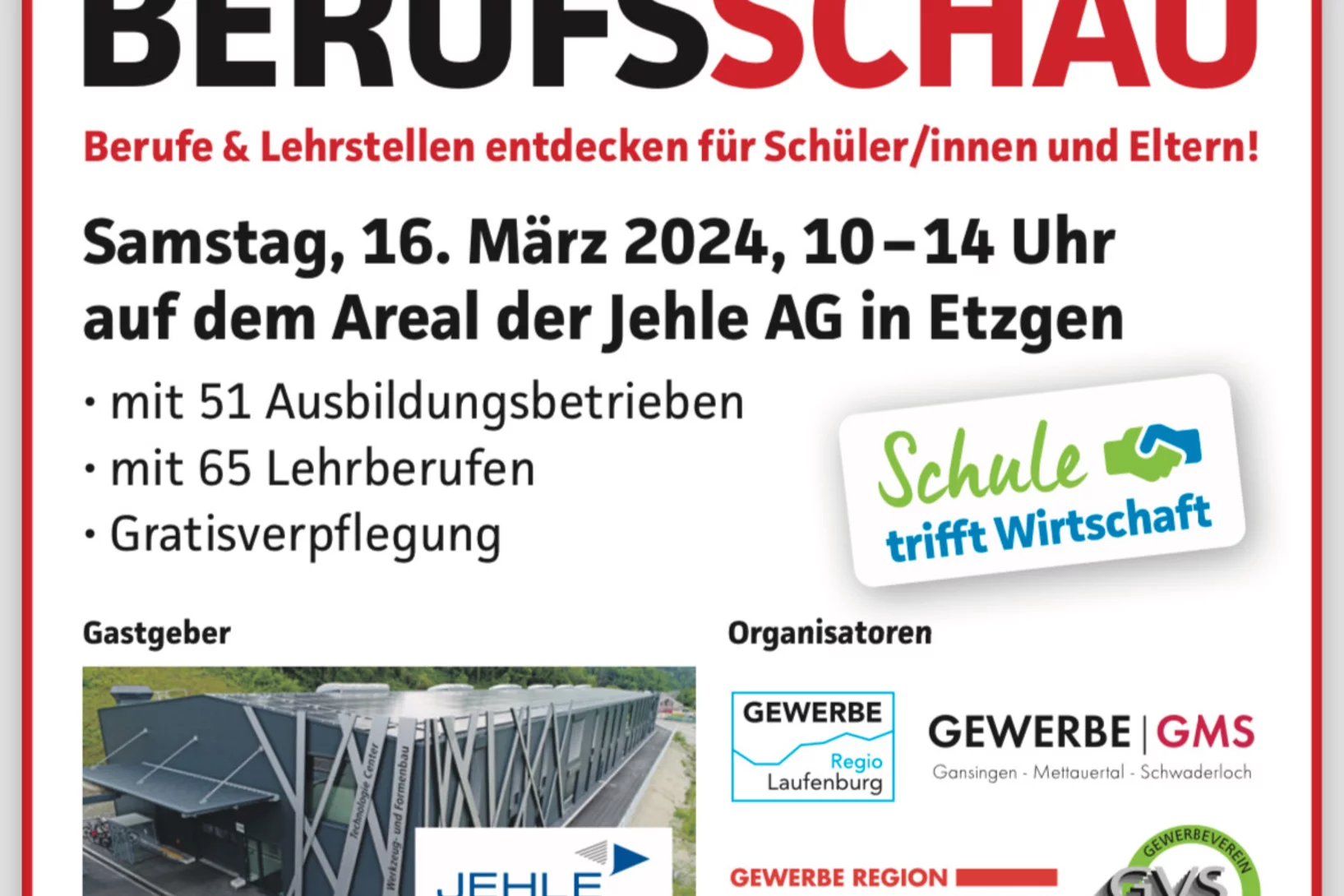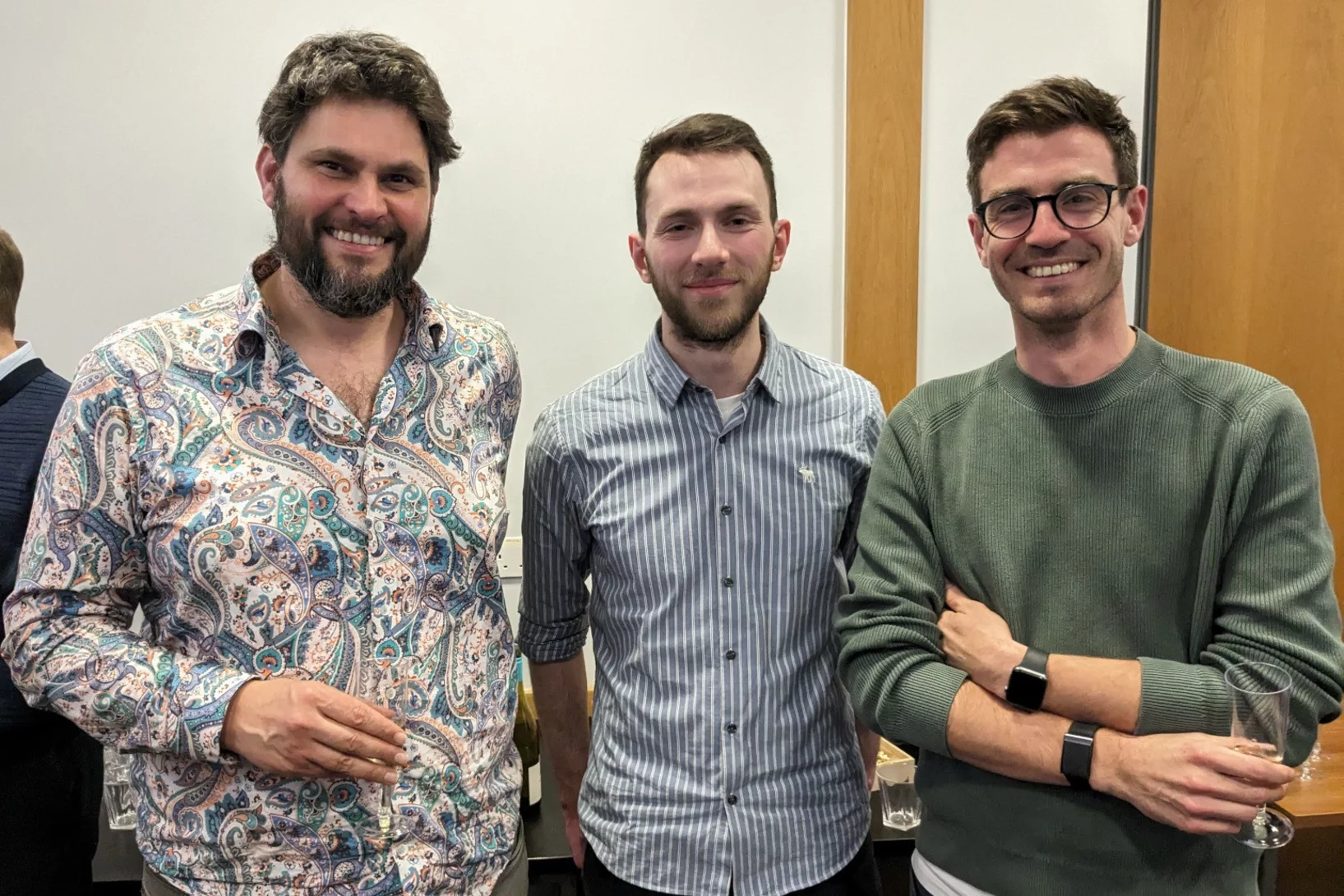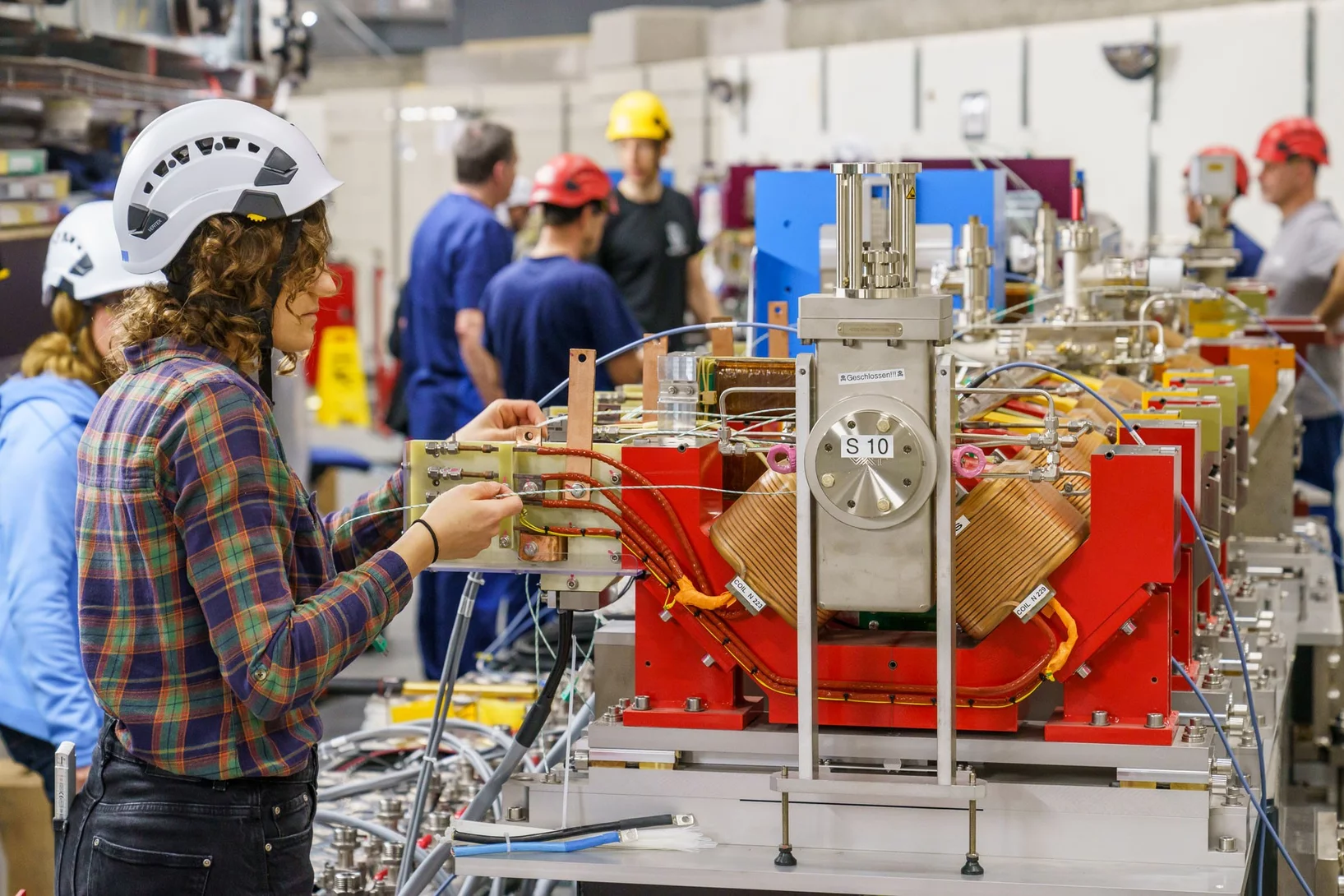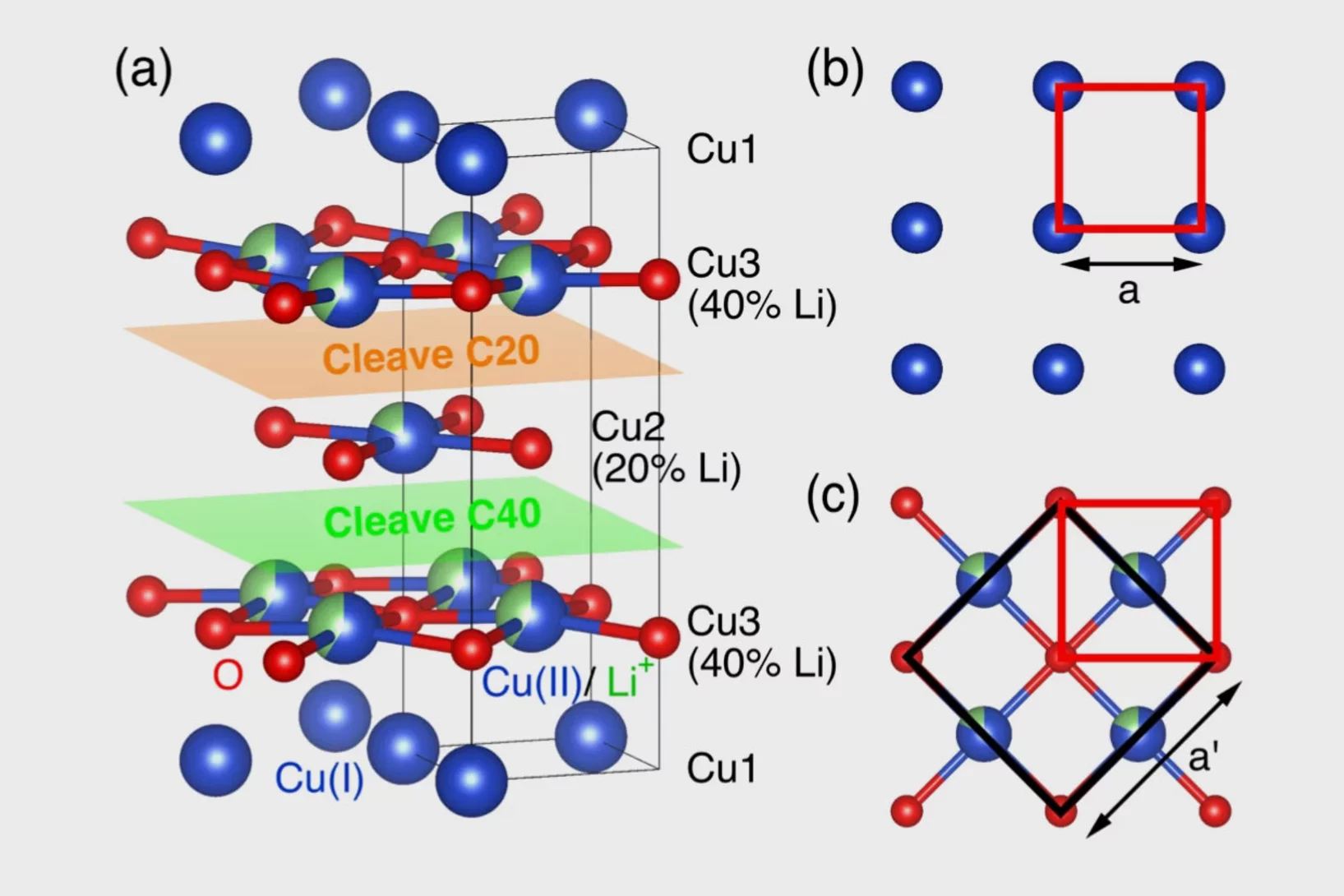Abandon de l’énergie nucléaire, développement de l’énergie solaire et éolienne, production d’énergie à partir de la biomasse, réduction de la consommation d’énergie. D’ici 2050, la Suisse doit atteindre la neutralité climatique. Un objectif ambitieux, rendu plus urgent que jamais par une situation géopolitique de plus en plus difficile. Comment faire pour mettre en place ces prochaines années un approvisionnement énergétique durable et résistant pour la Suisse? Comment les énergies renouvelables peuvent-elles être utilisées de manière optimale? Quelles sont les nouvelles technologies les plus prometteuses? Au PSI, des chercheurs s’efforcent de trouver des réponses à ces questions décisives.
Dr. Chiara Favaretto has been honored with the Alavi-Mandell Award 2024
We congratulate Dr. Chiara Favaretto for the excellent research work she did during her time at the Center for Radiopharmaceutical Sciences.
Un changement fondamental
L'intelligence artificielle aide à évaluer efficacement des quantités de données inimaginables et à exploiter pleinement le potentiel des grandes installations de recherche.
Tour du monde des saveurs
Au PSI travaillent des personnes de 64 nationalités différentes. Chacune d’elles a bien entendu ses préférences culinaires.
2024 Guido Altarelli Award to Javier Mazzitelli
The Guido Altarelli Award honours the memory of the late Guido Altarelli, one of the founding fathers of QCD, an outstanding communicator of particle physics, and a mentor and strong supporter of Junior Scientists.
Javier Mazzitelli has been awarded the 2024 Guido Altarelli Award in acknowledgement of his distinguished contributions to the field of particle physics. The Guido Altarelli Award is awarded every year to junior scientists for outstanding scientific contributions to the fields covered by the DIS Conference series.
Tips and Tricks for the Crystal Growth of Inorganic Materials
We are happy to announce that the call for abstracts for the Workshop on Tips and tricks for the crystal growth of inorganic materials is now open. The workshop brings together experts from the Solid State Chemistry and Condensed Matter Physics communities in order to discuss the accomplished progress and perspectives for future developments in the synthesis and crystal growth of materials with novel and interesting physical properties. The event will take place at the Paul Scherrer Institut (PSI), Switzerland, 26th-27th of August 2024.
Physik-Olympiade Schweiz
Für neugierige Lernende und Mittelschülerinnen und Mittelschüler. Ein Lernender des PSI war erfolgreich dabei.
Three-dimensional magnonics
Researchers from an international collaboration between Switzerland, Italy, and Germany have performed the first time-resolved imaging at sub-ns timescales of the three-dimensional propagation dynamics of a spinwave in a synthetic antiferromagnetic nanostructured device, opening up the possibility to investigate magnon dynamics in complex three-dimensional geometries.
Surface oxidation/spin state determines oxygen evolution reaction activity of cobalt-based catalysts in acidic environment
Co-based catalysts are promising candidates to replace Ir/Ru-based oxides for oxygen evolution reaction (OER) catalysis in an acidic environment. However, both the reaction mechanism and the active species under acidic conditions remain unclear. In this study, by combining surface-sensitive soft X-ray absorption spectroscopy characterization with electrochemical analysis, we discover that the acidic OER activity of Co-based catalysts are determined by their surface oxidation/spin state.
Eure Fragen zu Karriereberatung
‘Hast du Beispiele der wichtigsten Fragen und Antworten aus den Karriereberatungen? Worüber redest du mit den Nachwuchsforschenden? Was passiert, wenn ich nicht so recht weiss, welche Karriereunterstützung ich brauche? Was erwartet mich in einer Karriereberatung? Und worüber sprechen wir denn eine ganze Stunde?’
Hast du dich das auch schon gefragt, und bis jetzt keine gute Möglichkeit gefunden, diese Frage zu stellen? – Da andere die gleichen Fragen hatten, findest du es jetzt in diesem Blog Post heraus:
Sauver la musique grâce aux rayons X
La SLS joue B.B. King, le King of the Blues! En collaboration avec le Montreux Digital Project, des bandes sonores historiques sont numérisées au PSI.
Un raccourci possible
L’apprentissage machine et l’intelligence artificielle font désormais partie des outils de la plupart des scientifiques du PSI. Ces méthodes modifient parfois en profondeur la science.
Lubna Dada
Sur la piste des bioaérosols végétaux pour améliorer les modèles climatiques
Progrès grâce à la collaboration stratégique
Le Paul Scherrer Institut (PSI) et l'entreprise finlandaise PiBond collaborent pour exploiter commercialement des produits semi-conducteurs avancés fabriqués avec la lithographie EUV.
Wareneingang im Zentrallager
Zurzeit bewirtschaften wir ca. 14'000 normierte Artikel. Wir vom Materialdienst haben den Überblick!
Hinter den Kulissen: Eine Aufgabe der Gebäudereiniger am PSI
Ein Teil meiner Arbeit ist das Extrahieren, was ist das?
Farewell of Agnes Åhl
From October 2023 to March 2024, Agnes Åhl, a SwedNess PhD student in the group of Lennart Bergström at the Stockholm University, absolved her external stay in the Soft Matter Group at LNS.
XL-Ausbildungssitzung
Eine Sitzung zum Austauschen, besprechen und reflektieren, gemeinsam mit den Lernenden und Berufsbildnerinnen.
All Two-Loop Feynman Integrals for Five-Point One-Mass Scattering
We compute the complete set of two-loop master integrals for the scattering of four massless particles and a massive one. Our results are ready for phenomenological applications, removing a major obstacle to the computation of complete next-to-next-to-leading order QCD corrections to processes such as the production of a H/Z/W boson in association with two jets at the LHC. Furthermore ...
Laura Heyderman
Comment construire un microrobot qui peut être contrôlé magnétiquement?
Collaboartion Meeting in Wengen
The Mu3e collaboration met four four days in Wengen. We discussed in detail the steps needed to build and integrate the detector and how to calibrate and control it. Further sessions were dedicated to on- and offline analysis of first data.
Polybenzimidazole Membrane Design Principles for Vanadium Redox Flow Batteries
Energy storage technologies with long storage duration are essential to stabilize electricity grids with a high share of intermittent renewable power. In a redox flow battery, the electrochemical conversion unit, where the charging and discharging reaction takes place, is spatially separated from the energy storage medium. In the all-vanadium redox flow battery (VRFB), a sulfuric acid aqueous electrolyte with dissolved vanadium ions is used as the storage medium. Vanadium is present in 4 different oxidation states, the redox couple vanadium(II) and (III) on the negative side of the cell, and vanadium(IV) and (V) on the positive side. This allows the battery to be repeatedly charged and discharged. A separator or membrane is used between the negative and positive electrode, which should selectively conduct the ions of the supporting electrolyte and minimize the passage of vanadium ions. Fluorinated membranes, such as Nafion™, are often used for this key component, but these ionomers were not originally developed for this application and therefore have functional shortcomings. Furthermore, the production and use of fluorinated materials is to be severely restricted or even banned in Europe. Therefore, the development of hydrocarbon-based membranes for the VRFB is of great importance. The study reported here focuses on polybenzimidazole polymers and membranes, which could be a promising materials class for next generation flow batteries.
Ein faszinierender Tag mit den ETH-Lernenden am PSI
ETH-Lernende erkunden das PSI: Spannende Vorträge, beeindruckende Führungen und Einblicke in den Lehrberuf KV. Ein Tag voller Entdeckungen und Austausch.
Nouveau procédé de fabrication de semi-conducteurs
L’Institut Paul Scherrer PSI travaille avec l’entreprise finlandaise PiBond à l’utilisation commerciale de produits semi-conducteurs avancés fabriqués par lithographie EUV.
Die Suche nach dem richtigen Beruf: Die Berufsschau in Etzgen bietet Orientierung
An der Berufsschau in Etzgen mit über 1000 Besucherinnen und Besucher wurden Weichen gestellt, das PSI war auch vor Ort!
High-resolution ptychographic imaging at a seeded free-electron laser source using OAM beams
Electromagnetic waves possessing orbital angular momentum (OAM) are powerful tools for applications in optical communications, quantum technologies, and optical tweezers. Now, a consortium of collaborators in France, Italy, Slovenia, Spain, Switzerland, Sweden, and the US reports on using such beams in the extreme ultraviolet region for ptychographic imaging in the cover page article of Optica 11, Issue 3. By controlling the topological charge, the researchers achieve an improvement of 30% in image resolution.
Ben Gayther successfully defends his thesis
Ben Gayther developed calibration algorithms, carried out detailed studies on the use of timing information in reconstruction, and contributed to the integration run at PSI. He has now successfully defended his thesis at University College London.
What will the SLS 2.0 upgrade mean for experiments?
Tighter beams, brighter light and extended photon energies open new experimental possibilities.
Collaboration Meeting in Wengen
The Mu3e collaboration met four four days in Wengen. We discussed in detail the steps needed to build and integrate the detector and how to calibrate and control it. Further sessions were dedicated to on- and offline analysis of first data.
Hydrogène: suffisamment propre pour le tournant énergétique?
L’hydrogène peut jouer un rôle déterminant dans la transition vers un système énergétique zéro net. Mais pour ce faire, il doit être produit correctement.
Electron Glass Phase with Resilient Zhang-Rice Singlets in LiCu3O3
LiCu3O3 is an antiferromagnetic mixed valence cuprate where trilayers of edge-sharing Cu(II)O (3d9) are sandwiched in between planes of Cu(I) (3d10) ions, with Li stochastically substituting Cu(II). Angle-resolved photoemission spectroscopy (ARPES) and density functional theory reveal two insulating electronic subsystems that are segregated in spite of sharing common oxygen atoms: a Cu dz2/O pz derived valence band (VB) dispersing on the Cu(I) plane, and a Cu 3dx2−y2/O 2px,y derived Zhang-Rice singlet (ZRS) band dispersing on the Cu(II)O planes.

